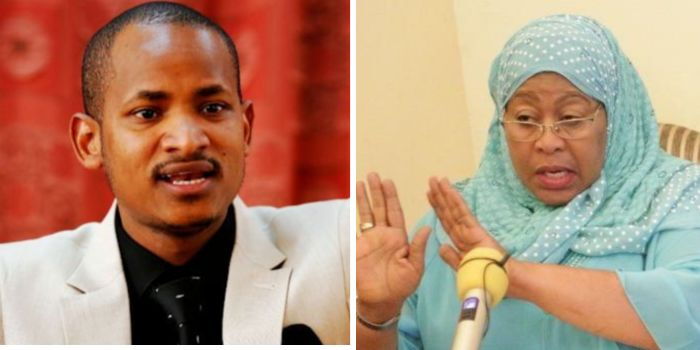Nairobi Gubernatorial Race: Babu Owino Poised to Lead if He Runs on Wiper Ticket

Source: Facebook
As the capital city, Nairobi is not just an administrative hub; it is the heartbeat of the nation, a melting pot of tribes, businesses, and politics.
Whoever wins Nairobi commands more than just county power; they become a national figure with immense influence.
So far, the field is shaping up with key political figures throwing their hats into the ring.
Irungu Nyakera of the Democracy for Citizen Party (DCP), Embakasi East MP Babu Owino, Dennis Waweru, Westlands MP Tim Wanyonyi, and the sitting governor, Johnson Sakaja, are among those staking their claim.
Each of these individuals brings with them a base, a history, and a promise. Yet, beneath the surface of personality and policy lies the raw arithmetic of tribal and political alliances.
It is important to remind those vying for this seat of one enduring truth. The Kikuyu population in Nairobi tends to vote as a block.
Their unity at the ballot is often unmatched. While they are around 150,000 votes fewer than the combined total of the Western Kenya formations and the Kamba vote, they are consistent and coordinated.
This fact cannot be ignored. Every time the Western vote is split, it gives the Kikuyu vote more power and potential to decide the winner.
Ironically, despite this numerical strength and cohesion, the Kikuyu have never held the governor's seat in Nairobi. Their votes have instead helped deliver the seat to others.
Take, for example, the election of former governor Mike Sonko, a Kamba, who rode on significant Kikuyu support.
Before him, ex-county boss Evans Kidero, a Westerner, defeated the Kikuyu candidate Waititu, thanks to tacit backing from the Kamba bloc.
In 2022, Polycarp Igathe, a Kikuyu candidate, failed to clinch the seat despite massive Kikuyu support.
Why? Because the community supported a Western candidate, Johnson Sakaja, under the United Democratic Alliance party, a party with a Kikuyu-dominated voter base in the city.
The Kikuyu may not have had a governor yet, but their kingmaking ability is well established.
Looking at the Nairobi County Assembly numbers, the pattern becomes even clearer.
Nearly half the elected members of the county assembly come from the Kikuyu community, a consistent trend that underscores how effectively the Kikuyu numbers game works in the capital.
This numerical strength translates into influence, presence, and negotiating power within Nairobi’s political ecosystem.
Looking ahead, today's political dynamics suggest an even more interesting turn. DCP will field a Kikuyu candidate, likely consolidating the Kikuyu block behind them.

Source: Original
Jubilee, though historically a Kikuyu party, does not seem to have the momentum to carry Dennis Waweru across the finish line.
The DCP appears to have captured the imagination and loyalty of the Kikuyu electorate in Nairobi.
Meanwhile, the Western vote is again likely to be divided. With Babu and Wanyonyi both eyeing the seat, unity among Western Kenya voters is improbable.
However, all is not lost. Governor Sakaja still has a chance to consolidate Western support and defend his seat.
Similarly, Babu could galvanize the Western bloc, particularly on the Kalonzo Musyoka Wiper Party ticket.
If he secures that platform, he will gain a significant edge and could emerge as the candidate to beat.
His youthful energy, populist appeal, and ground mobilisation skills would give him a fighting chance in what is sure to be a high-stakes race.
All in all, it looks like anyone could be governor of Nairobi in 2027.
The race is wide open. The only certainty is that Nairobi will once again set the tempo for the nation’s political pulse.
The views expressed are solely his and do not in any way reflect the position of TUKO.co.ke.
Source: TUKO.co.ke











